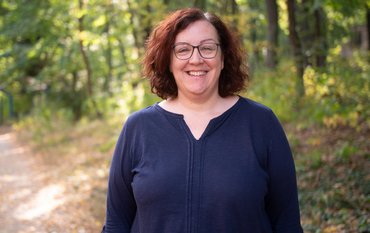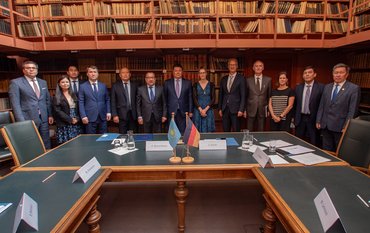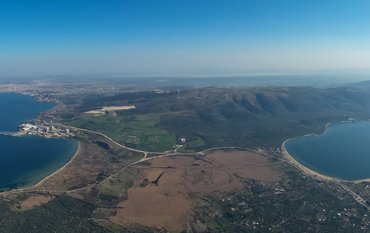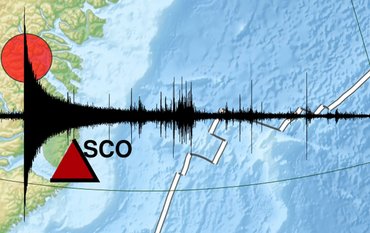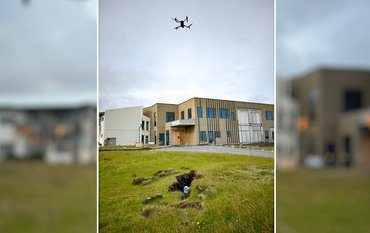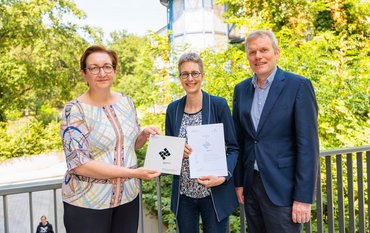At the end of October, the GFZ joined the “Declaration on Research Assessment” (DORA). In this interview, GFZ’s Scientific Executive Director Susanne Buiter and the Director of GFZ’s Department of Geoinformation, Wolfgang zu Castell, explain the background to joining.
What is DORA?
Wolfgang zu Castell:DORA stands for Declaration on Research Assessment and goes back to the Annual Meeting of the American Society for Cell Biology in San Francisco in 2012. Back then, it had long been known that the assessment of scholarly research using only metrics such as the impact factor of scientific journals repeatedly leads to shortcomings, especially when these metrics are used to assess the quality of research by individuals, groups or institutions.
The impact factor is inappropriate as a criterion and something more suitable is required. This resulted in 18 recommendations aimed at funding organisations, institutions, publishers, and researchers in order to arrive at a more qualified approach of evaluating scholarly output.
What significance does DORA have for a centre like GFZ?
Susanne Buiter: Science at GFZ is as manifold as mentioned in the declaration. This applies not only to publications in journals, but also to data and research software. For example, it is as important when GFZ makes reliable, high-quality data services available to the international scientific community as when it publishes its research in any highly acclaimed scientific journal.
It is not easy to unlearn old patterns. Too often we still fall back into counting publications, the h-index or the impact factor. We need to become aware of these patterns and actively counter them with a more honest approach of evaluating research performance. At GFZ, we have long been using a broader set of indicators that evaluates research performance more holistically. We call it the “Qualitative and Quantitative Internal Assessment System”, QUIBS for short.
Wolfgang zu Castell: As an example, this also allows us to adequately acknowledge the achievements of team members who work in one of our highly specialised labs where they achieve outstanding results, but do not publish in the traditional sense.
Susanne Buiter: And we can acknowledge for example our efforts in policy advice or science communication. By signing up to DORA, we are openly acknowledging that science is more diverse than individual key figures and that we are committed to an honest and transparent evaluation of scholarly output.
And what does that mean for individual researchers?
Wolfgang zu Castell: DORA applies to everyone. The declaration requests that we all make an effort to evaluate science based on scientific content and not on the number of publications. In practical terms, this includes the consistent citation of primary literature, the original data sources, or the developers of the software used. A central demand of DORA is to make evaluation criteria transparent, to discuss them consistently, and to develop them further.
Susanne Buiter:We are all called upon to adopt a different attitude, to implement it and to consistently demand it in our environment. In this respect, it is not the Executive Board or the department and section heads alone that can implement DORA, but the GFZ community in its entirety. And on March 3 next year, we want to go one step further and discuss the declaration of the Coalition for Advancing Research Assessment (CoARA) as part of an Open Science Day at the GFZ. We want to join CoARA as well.


![[Translate to English:] Both scientists sitting on stools in front of a wall of books in the Telegrafenberg library](/fileadmin/_processed_/6/6/csm_Buiter_Castell_DORA_4_a7269b9120.jpeg)
![[Translate to English:] Both scientists in conversation, standing in front of a computer in the library](/fileadmin/_processed_/b/9/csm_Buiter_Castell_DORA_d159a929d4.jpeg)




![[Translate to English:] Martin Herold standing in front of the library on the Telegrafenberg](/fileadmin/_processed_/c/d/csm_Martin_Herold_d385ee4dd9.jpeg)
![[Translate to English:] Many people are listening to a presentation in the GFZ lecture hall.](/fileadmin/_processed_/c/a/csm_1_Bild1_hell_b9c0e9f5ed.jpeg)





![[Translate to English:] Gruppenbild mit 4 Personen](/fileadmin/_processed_/8/d/csm_20241017_GFZ-Emmerman-Medal-005_web_reinhardtundsommer_21a414fa4a.jpeg)






![[Translate to English:] Ice landscape with five red tents](/fileadmin/_processed_/8/9/csm_Zeltlager_auf_dem_Eis_Urheberin_Jenine_McCutcheon_5ced2d523b.jpeg)


